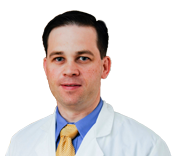One of the genes most frequently mutated in cancer, called RAS, which is found in more than 30 percent of all cancer types, has been under intense study for decades. It was one of the first cancer-causing genes discovered, but strategies for shutting it down have come up short, until recently.
Now a structural biologist, recruited in 2012 to the University of Texas Southwestern Medical Center from Harvard Medical School, is a crucial part of the effort to target mutated RAS genes in order to treat cancer. Dr. Kenneth Westover, M.D., Ph.D., was recruited with the help of a First-Time Tenure-Track Award from CPRIT. Dr. Westover has a dual role at UT Southwestern Medical Center, both as a research scientist and as a radiation oncologist who treats lung cancer patients.
Read More
One of the genes most frequently mutated in cancer, called RAS, which is found in more than 30 percent of all cancer types, has been under intense study for decades. It was one of the first cancer-causing genes discovered, but strategies for shutting it down have come up short, until recently.
Now a structural biologist, recruited in 2012 to the University of Texas Southwestern Medical Center from Harvard Medical School, is a crucial part of the effort to target mutated RAS genes in order to treat cancer. Dr. Kenneth Westover, M.D., Ph.D., was recruited with the help of a First-Time Tenure-Track Award from CPRIT. Dr. Westover has a dual role at UT Southwestern Medical Center, both as a research scientist and as a radiation oncologist who treats lung cancer patients.
The RAS gene is involved in making a protein that tells cells whether to grow or not. Normally it switches between an “on” state, when growth is OK, and “off,” when the cells should stop growing. But a cancer-causing mutation of RAS creates a form of the protein that is always “on,” telling cells to multiply without normal limits. Dr. Westover uses X-ray crystallography to study the molecular structures of mutated RAS proteins in order to better understand their structure and function.
Cigarette smoking causes a mutation, called G12C, to a RAS gene in the lungs. Cancer patients with this mutation have had no targeted chemotherapy options, and their long-term prognosis was poor.
Dr. Westover’s research contributed to the discovery of a molecule that can permanently bind to the G12C mutant protein and shut it down. In cancer cells cultured in a laboratory, the inhibitor put the brakes on abnormal growth.
While Dr. Westover’s compound won’t necessarily make the cut as a drug candidate in humans, he says his research has pushed the field forward. “We started the process of making direct RAS inhibitors, and at the time, we weren’t aware of anyone else who was thinking of that concept,” he says. Now there are startup companies springing up, and even major pharmaceutical companies, which have RAS research programs. And a potential therapy for G12C may make it into human trials soon.
Dr. Westover continues to study the structure and function of RAS, in particular, how different mutants might operate in different ways. A large number of colon cancer patients have a RAS mutation that isn’t found in other tissues, for example. “The question is, why? What do they do? How do they work?” he says. He also studies the way the protein doubles up, or dimerizes, in order to function.
His research also has implications for a number of developmental disorders that feature RAS mutations, such as Noonan syndrome and Costello syndrome, for which no therapies so far address their root cause.
Dr. Westover says his dual roles as physician and scientist are on parallel tracks in some respects at the moment. But he thinks his work with patients, which he finds inspirational and motivating, informs his laboratory research in a crucial way. “Philosophically, I’ve always believed that basic research is the main catalyst that will enable discoveries that fundamentally alter human disease outcomes for the better,” he says. And “I think it’s very important to have people who can act as liaisons to clinical scientists who understand the viewpoint of a basic scientist. It leads to conversations that are useful and important.”
Dr. Westover received his undergraduate degree in biochemistry from Brigham Young University. While he was an undergraduate, Dr. Westover was a summer research fellow at UT Southwestern Medical Center, doing work that set the stage for the research he still does today. He earned his M.D. along with his Ph.D. in biophysics from Stanford University. He was an intern at Brigham and Women’s Hospital in Boston prior to becoming a resident at Harvard in 2008.
Read Less

